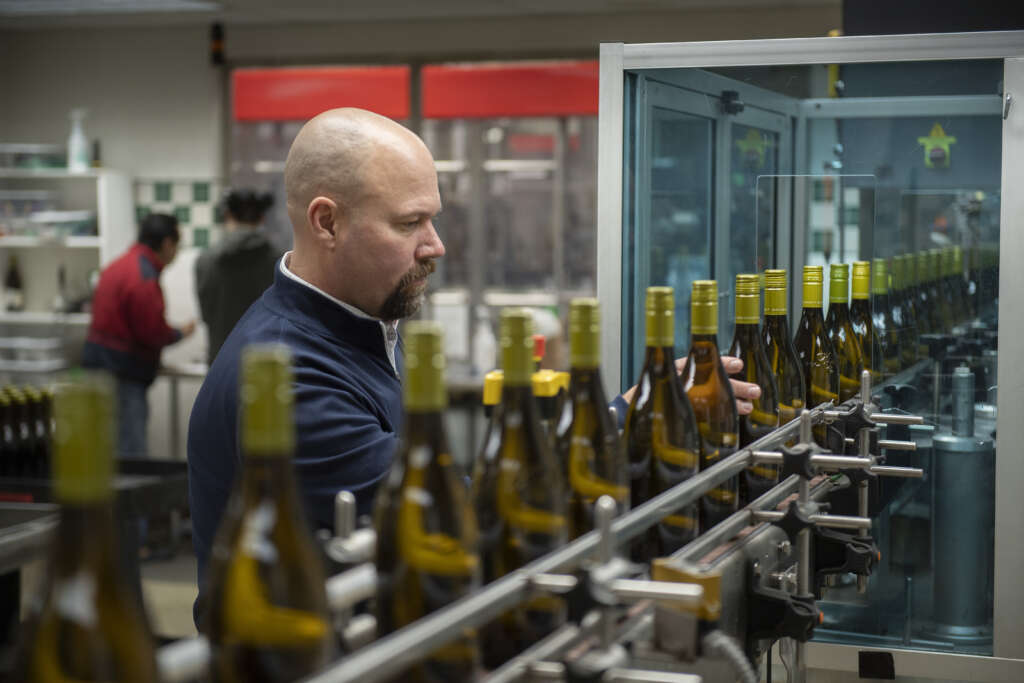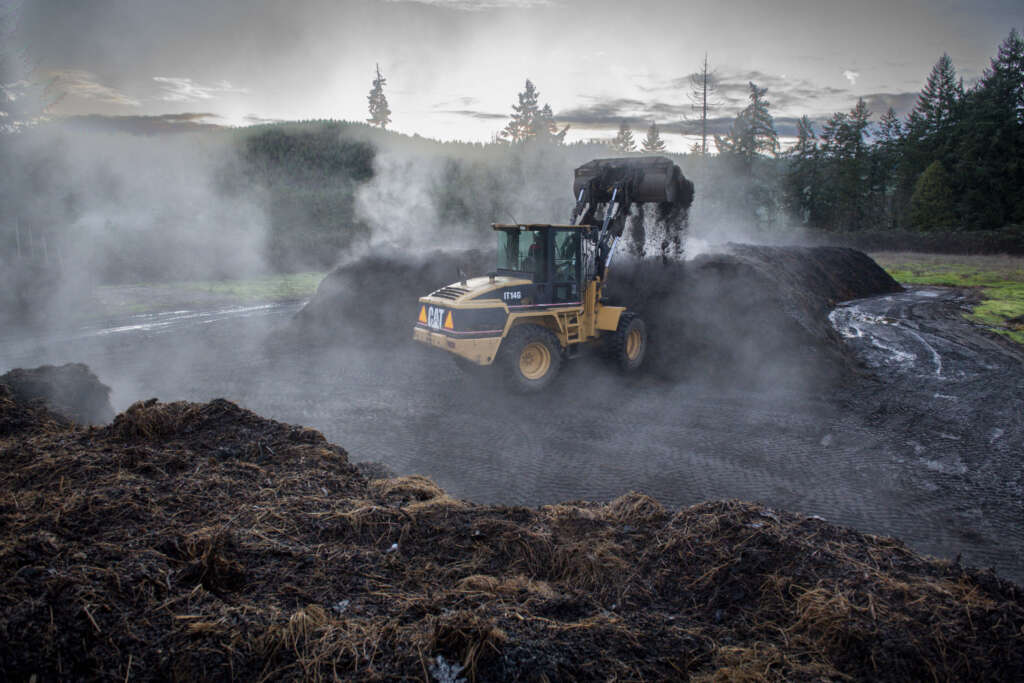Grapes and glass are the main factors affecting the wine industry’s carbon footprint. By growing grapes sustainably and using glass responsibly, wineries like King Estate can significantly reduce their emissions. As the largest Biodynamic® vineyard in North America, King Estate is already making a difference through sustainable farming practices. And as of this year, we’ve taken a major step forward on how we use wine packaging – primarily the glass bottles – to lighten the environmental load. Read on to learn just how much of a difference we’re making. But first, why is the production and use of glass so important to sustainability efforts anyway?
Some studies estimate that glass – both making and moving it – accounts for almost 50% of wine’s carbon footprint. Not only are glass bottles the second most expensive raw material in the making of wine, after the grapes themselves, but they come at an environmental cost as well. It takes a lot of energy to manufacture and transport glass. Changes in the glass save carbon in two big ways – through freight and weight.
Making King Estate bottles more sustainably
Glass bottle manufacturing alone accounts for 29% of wine’s carbon footprint, making it the single biggest contributor to emissions, according to a 2011 study by the Wine Institute as reported by Dave McIntyre in The Washington Post. In 2023 King Estate moved its bottle manufacturing from China to North America to make gains on both the weight and the freight sides of the glass bottle.
The first bottles to come off the line in North America were with glass manufacturer Fevisa in Mexicali, Baja California, Mexico. Fevisa is investing and adding the most technically advanced wine bottle manufacturing facility in North America.

At the same time King Estate moved manufacturing to this continent, we reduced the weight of 72% of the bottles we use. For years wine producers bought into the notion that heavier bottles signify better wine quality. With more environmental awareness, bottle weight is increasingly seen as a negative rather than a positive factor. Traditionally wine bottles weigh around 600 grams. The aim is to get the weight down to 500 grams or lighter. With the switch in glass, 76% of our bottles are now below 600 grams. The per-bottle weight reduction is 55 grams, or 2 ounces, for King Estate Pinot Gris, and 110 grams, or almost 4 ounces, for Inscription Pinot Noir. Multiply that by almost 2 million bottles used by these two wines and the net effect is a reduction of 128 metric tons in weight which translates into 12.36 metric tons less in CO2 emissions.
Transporting King Estate bottles, wine
Even more significant than bottle weight is transportation, although bottle weight is a factor in transport costs as well. The reduction of distance the bottle must travel is the best way that a winery can reduce its carbon footprint. The physical transportation of glass – both before and after the bottles contain wine – accounts for an estimated 13% of the carbon emissions from the wine industry. For King Estate, the difference between shipping from China and shipping from Mexico is about 5,700 miles (by ship and truck). That saves 2,437 tons in annual carbon emissions.
King Estate’s CO2 emissions drop
The combined effect of moving manufacturing to North America, going to a plant that is moving toward carbon neutrality, and switching to a lighter bottle is reducing King Estate’s carbon footprint by 2,448 metric tons a year. That’s the equivalent of getting 353 cars each driving 20,000 miles a year off the road. Think if every one of Oregon’s 1,000 wineries did the same. Or California’s 6,000 wineries. Or the United States’s 16,000.

More than glass affects sustainability
While glass is the major factor in reducing carbon emissions, the boxes and screw caps play a role, too. Manufacturing of these items has also moved to North America, and by redesigning the manufacture of our boxes to reduce scrap waste, we have saved the equivalent of almost 19,000 cases a year.
King Estate will continue to do our part to produce wine as sustainably and responsibly as we can. And of course we will never lose sight of our goal to make and share excellent Oregon wine with you.
